Dishwasher power in kW
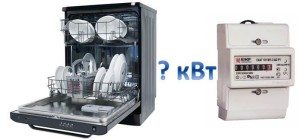 Every year, electricity tariffs in both Europe and Russia are rising, and bills are rising accordingly, so most people are interested in saving at least a little, but how to do this? The problem is that the number of energy consumers in our apartments and houses is steadily growing: TV, vacuum cleaner, multicooker, water heater, split system, and now a dishwasher, consumption is growing, and saving is becoming increasingly difficult. But it turns out that you can save money by starting with a dishwasher; first you need to calculate its power and perform other manipulations, which we will talk about in the article.
Every year, electricity tariffs in both Europe and Russia are rising, and bills are rising accordingly, so most people are interested in saving at least a little, but how to do this? The problem is that the number of energy consumers in our apartments and houses is steadily growing: TV, vacuum cleaner, multicooker, water heater, split system, and now a dishwasher, consumption is growing, and saving is becoming increasingly difficult. But it turns out that you can save money by starting with a dishwasher; first you need to calculate its power and perform other manipulations, which we will talk about in the article.
Why are some dishwashers economical and others not?
The profitability of a dishwasher depends on the energy efficiency of its units and the technical solutions that its manufacturer has used in a particular model. A lot of electricity is spent on the operation of the heating element, circulation pump and pump. In the first place, of course, is the heating element that heats the water, in the second place is the heating element that ensures the drying operation. Dishwashers that do not have a hot dryer use much less energy.
Important! Convection drying dishwashers do not have a second heating element or fan, which means they consume about 40% less energy.
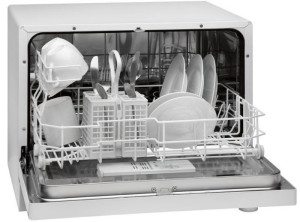 Electricity consumption largely depends on the capacity of the water tank and the temperature of this water. Accordingly, the smaller the tank capacity and the less water the dishwasher spends per wash cycle, the lower the overall energy consumption.Various original technical solutions also reduce energy costs in the dishwasher. In particular, heat exchangers have recently begun to be installed in dishwashers produced under the Bosch brand. They save thermal energy, which means the machine has to spend less electricity.
Electricity consumption largely depends on the capacity of the water tank and the temperature of this water. Accordingly, the smaller the tank capacity and the less water the dishwasher spends per wash cycle, the lower the overall energy consumption.Various original technical solutions also reduce energy costs in the dishwasher. In particular, heat exchangers have recently begun to be installed in dishwashers produced under the Bosch brand. They save thermal energy, which means the machine has to spend less electricity.
Before purchasing a new dishwasher, it's a good idea to find out how energy efficient it is. This is not difficult to do; just pay attention to the characteristics of a particular model. There is a line “energy consumption class”, followed by a letter of the Latin alphabet.
- The letter A means that the dishwasher consumes 0.7-1.07 kW.
- The letter B means that the dishwasher consumes 1.08-1.1 kW.
- The letter C means that the machine consumes up to 1.5 kW.
- The letters D and E are less common in modern machines and mean that they take up to 2 kW.
- And finally, machines with energy consumption classes F and G are considered the most uneconomical; they take 2.5 and 2.7 kW.
If the manufacturer managed to ensure that his machine consumes less than 0.7 kW of energy, then in its characteristics he adds a “+” sign to the letter A, or two or three pluses if the energy efficiency of the model is significant.
How to make your dishwasher more economical?
 In order for the dishwasher to be most efficient and consume a minimum of watts of energy, you need to take care of this issue even before purchasing the “iron assistant”. This does not mean that when purchasing you need to look for a model that will benefit from every Watt. It is enough to listen to the following recommendations of experts.
In order for the dishwasher to be most efficient and consume a minimum of watts of energy, you need to take care of this issue even before purchasing the “iron assistant”. This does not mean that when purchasing you need to look for a model that will benefit from every Watt. It is enough to listen to the following recommendations of experts.
- Wash dishes with a delayed start.Proceed as follows, start the washing program, and when the machine pumps water into the tanks, stop the program and set the delay start so that the machine runs the washing program at night. By doing this, you will save electricity, because on the one hand, the tariff for it is lower at night, and on the other hand, in a few hours the water in the tanks will warm up to room temperature and less energy will be required to heat it.
- Don't leave dirty dishes behind. If food residue sticks to the dishes, it will take more energy to wash them. You will need hotter water, double rinsing, well, the idea is clear!
- Buy dishwasher models with a built-in heat exchanger. You can read about the operating features of this element in the article, what is a heat exchanger in a dishwasher.
- Use suitable washing modes. If the dishes are not very dirty, then they can be washed with water at a temperature of 30 0C, on the shortest program. Think for yourself how much energy you can save.
Note! Some dishwasher models have very energy-efficient modes, such as the “fast wash” mode, which completes the entire dishwashing cycle in just 30 minutes.
- Do not run the dishwasher if you have, for example, only 3 plates and two glasses, accumulate more dishes by soaking them in some large container, and then put everything in the dishwasher and wash it at once.
- If your machine model allows half-loading, then actively use this function, it is very convenient and can really save hundreds of watts of energy, water and detergents.
- Place dishes correctly in wash baskets.In this case, you will not have to wash it, which means you will save time, hundreds of watts of energy, water and detergents.
- Descale your dishwasher in a timely manner. A heating element covered with scale spends much more energy than a clean heating element.
Examples of economical dishwashers
High power is a big disadvantage of a dishwasher. High power, unlike other electrical appliances, does not give the dishwasher any advantages, perhaps only some disadvantages, because considerable power means high energy consumption. In this case, the question that comes to the fore is how much energy the machine consumes and how this figure can be reduced as much as possible, of course, without compromising the quality of washing and drying dishes.
We talked about how much electricity a dishwasher consumes and how to reduce this consumption, now we will discuss another question, which models of dishwashers are the most or one of the most energy efficient. Let's publish a short review on this topic.
- Full size fully integrated dishwasher Zigmund & Shtain DW6009X. It holds 15 sets of dishes, has a turbo dryer, and its average energy consumption is about 0.5 kW - an A++ value close to a record.
- Outperformed the previous dishwasher model Flavia BI60 KAMAYA. It consumes about 0.4 kW, which corresponds to the designation A+++. At the same time, its tank can accommodate 14 sets of dishes, and the washing modes are amazingly diverse.
- The top three most energy-efficient dishwashers are completed by the “iron assistant” from Germany TEKA DW8 41FI. It consumes about 0.5 kW, which corresponds to the A++ value.This model is interesting because it is completely energy efficient, that is, it consumes not only a small amount of energy, but also water and detergents, which makes it one of the most economical dishwashers in Europe.

For your information! TEKA DW8 41FI consumes about 8-9 liters of water per wash, using half the amount of detergent and salt.
In conclusion, how many watts of energy does a dishwasher consume? The indicators for different models are different. To find out how much a particular model consumes, you need to look at its characteristics, or more precisely at the line that indicates its energy consumption class. How much this is in numbers can be found out from the decoding of the symbols. Remember one thing - the less powerful your dishwasher, the less watts of energy it consumes.
Interesting:
1 reader comment
Add a comment Cancel reply
Categories
Washing machine repair
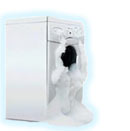

For buyers
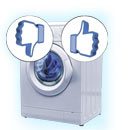
For users

Dishwasher

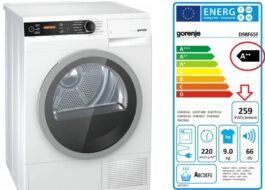
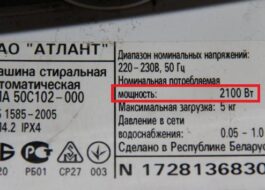
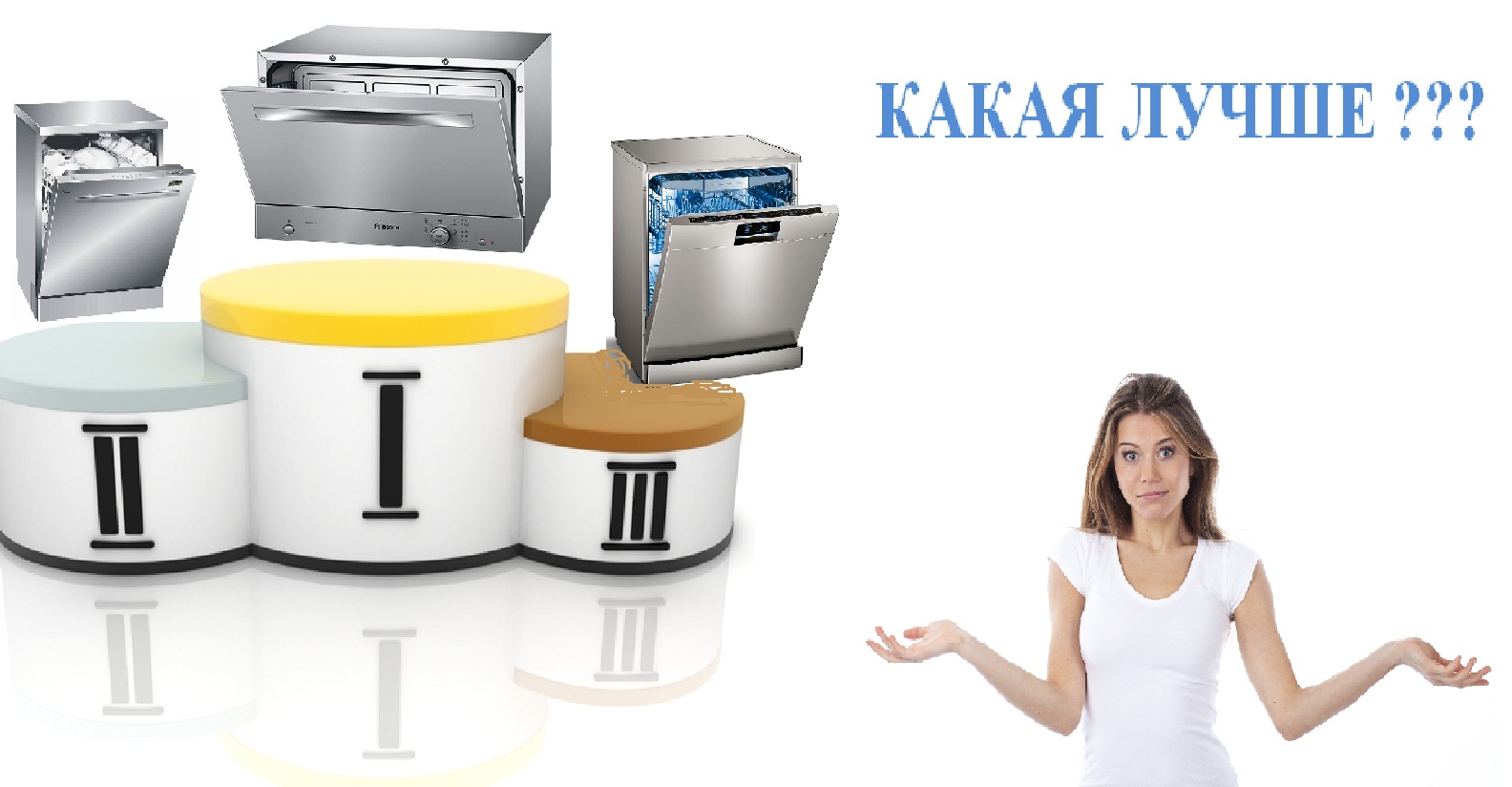
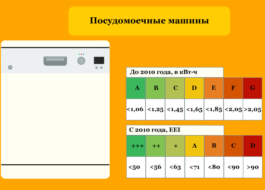
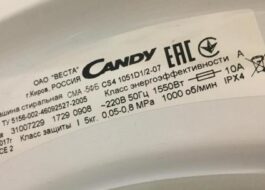

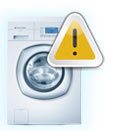
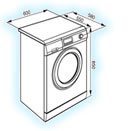
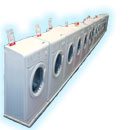
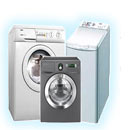


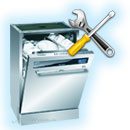
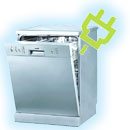

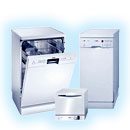
Thank you, everything is clear!